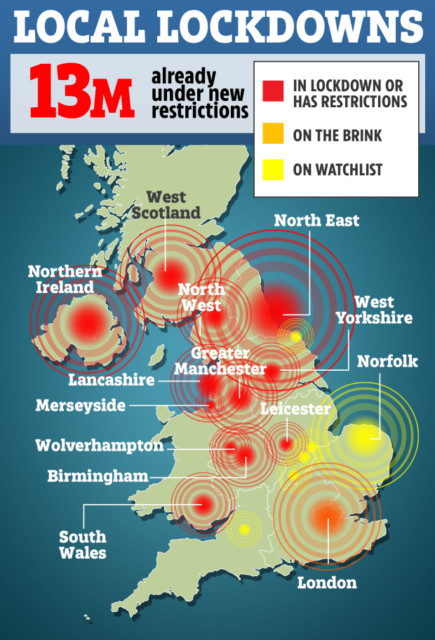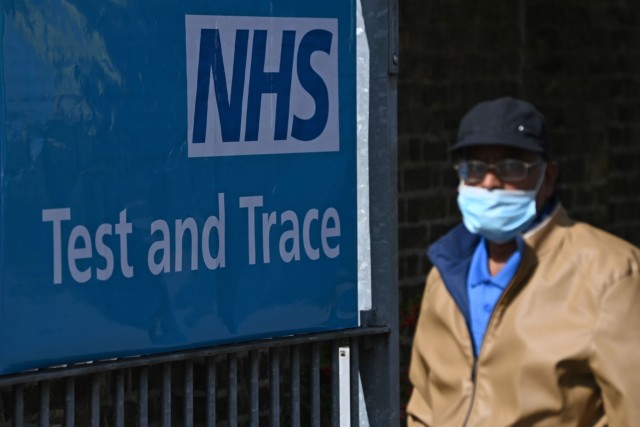MILLIONS of families on low incomes in England will be paid up to £500 if they have to quarantine to stop the spread of the coronavirus.
The payments will be made available to those on certain benefits who will see incomes drop as a result of having to self-isolate.
The government is also introducing new laws that will see anyone – not just those on benefits – slapped with a £10,000 fine if they ignore calls to quarantine.
Brits who have been contacted by the NHS Test and Trace team are required to self-isolate for 14 days in a bid to reduce the risk of spreading the deadly Covid-19.
Many low-income employees earning less than £120 a week aren’t entitled to statutory sick pay (SSP) when they take time off.
There are fears people are ignoring the instructions because their income will be cut if they do – or they just don’t want to.

It is against the law not to quarantine when told to but there isn’t much to enforce the rules at the moment.
Tougher regulations are being introduced after the Prime Minister said “there’s no question” that the UK is seeing a second wave of coronavirus infections, with new cases doubling every week.
He is expected to address the nation next week, possibly Tuesday.
On the new measures, Boris Johnson said: “People who choose to ignore the rules will face significant fines.
“We need to do all we can to control the spread of this virus, to prevent the most vulnerable people from becoming infected, and to protect the NHS and save lives.
“And while most people are doing their absolute level best to comply with the rules, I don’t want to see a situation where people don’t feel they are financially able to self-isolate.”
Here we take you through everything you need to know about the extra payments and when you could be fined.
Who can get a £500 payment for self-isolating?
If you’ve been told to quarantine by the NHS Test and Trace scheme then you may be eligible for extra help.
Those who test positive for the virus must self-isolate for 10 days, while those who have come into close contact with someone who has it must quarantine for 14 days.
Just fewer than 4million people on benefits in England will be eligible to the extra payment if they’re told to self-isolate, according to the government.
You will be eligible to claim the payment if you work full-time, part-time, self-employed or unemployed and you receive on of the following benefits:
- Universal Credit
- Working tax credits
- ESA
- JSA
- Income support
- Pension credit
- Housing benefit
The payments are only available to those who can’t work from home and will lose income as a result.
You will only get the payment if you have been asked by the official NHS Test and Trace team to self-isolate.
If you decide you have to quarantine because you are displaying symptoms, then you won’t be eligible for the funds, even though you’re following the guidance.
When will they payments start and how do I apply?
The payments will be available to anyone who has to self-isolate from September 28 onwards.
But you’ll need to wait until your period of self-isolation is over before making a claim.
They will be managed by local authorities, like payment scheme trialled in Oldham, Blackburn and Pendal, but the system isn’t expected to be running until October 12.








